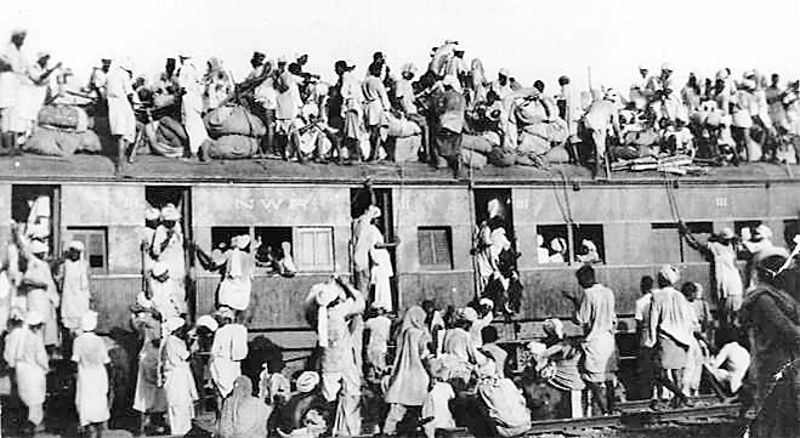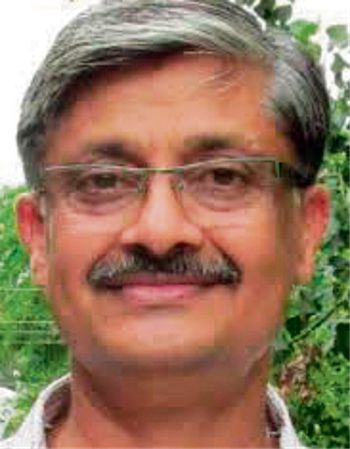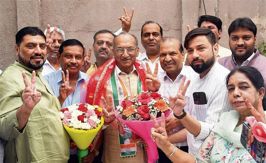
ONE of the basic truths about societies is that things which are deemed to be real have real consequences. Which means that, as any successful politician will tell you, it is important to control the narrative.
M Rajivlochan
ONE of the basic truths about societies is that things which are deemed to be real have real consequences. Which means that, as any successful politician will tell you, it is important to control the narrative. Otherwise, consequences which you do not approve of are likely to occur. Some times, as in the case of the Partition of India, the consequences visit upon the common public and they have to pay an extraordinarily high price for it.
The Partition of India happened because there already existed a belief, long nurtured by the Ashraf elite in India, that Muslims were discriminated in India, that Hindus got a much larger chunk of any benefits that accrued because of British rule over India, and that only the creation of a separate nation for Muslims would bring any relief. That was another matter that almost 30 per cent of the army and the police force in India were made up of Muslims, even though the Muslim share of the population was a mere 15 per cent and within Muslims, Ashrafs constituted just a little over 10 per cent of the Muslim population. It also did not matter that not a single Muslim could ever qualify in the competitive exam for the Indian Civil Service and yet, at least two Ashrafs were nominated in each batch by the government to the ICS.
This was the way of the British to ensure that there was adequate Muslim representation in the institutions.
The next inevitable step, promoted by the liberal Secretary of State for India, the journalist John Morley, was to provide separate electorates for Muslims. A few years later, Gandhi would stand in support of the desire of the Ashraf Muslim merchants of Bombay Presidency to launch an agitation in India, the Khilafat movement, on what could best be called an internal matter of Turkey. The only success of the Khilafat movement was to provide an overtly religious nucleus for Muslims in India around which to coalesce, something which the Muslim League, a body entirely made of Ashrafs, had failed to do till now. One of the usually forgotten facts of Indian history is that in 1920, under the religious impulse sparked off by the Khilafat movement, almost 20,000 Muslims (30,000, according to the textbooks in Pakistan), mostly poor and of the lower castes, began their long march northwards in the hope of reaching a land where Islam was not in danger. In India, they believed, Islam was in danger. A handful of them who managed to intrude into Soviet Russia converted to Marxism, and returned to India as Communists. The rest simply vanished, unremarked and unnoticed. The usual fate of those who allow themselves to be used as canon fodder.
Only the Akali Dal objected when the idea of separate electorates was expanded to include the Sikhs. The Congress maintained silence, even while its own report on the Kanpur riots of 1931 had concluded that the British were trying to create a narrative in India which could show that Muslims formed a separate ‘nation’ within India; and worse, they seemed to be succeeding in their enterprise since the Congress, by its silences, went along with the narrative of separatism. The faux sense of victimhood which the Muslim League propagated was challenged by Partap Singh Kairon in the Legislative Assembly when in December 1938, he moved the ‘Jhatka Meat Bill’. “I am moving this Bill in the capacity of a nationalist or a Punjabi, rather than that of a Sikh,” he explained. “I, as a true Indian or a Punjabi, intend to bring forward a measure by means of which the existing discriminatory restrictions against jhatka meat are sought to be removed.” The premier of Punjab, Sir Sikandar Hyat Khan, praised Kairon for taking this initiative. “I welcome such sentiments,” the premier said, “I again congratulate him for having such liberal views. I agree with him that people having their allegiance with any religion should be free to use whatever food they like and in whatever way they choose.”
Three years later, Kairon would leave the Akalis for being too communal and join the Congress, which then was a minor player in the politics of Punjab but was overtly nationalist.
A few years later, in 1946, when Nehru, as the head of the Interim Government, toured the North West Frontier Province to convince them of joining India, he was greeted with jeers by the local villagers and village elders. In the recently concluded elections, they had all voted for the Muslim League and its promise to form a separate Pakistan. Some of them even opened fire with canons at the aircraft in which Nehru was travelling. The reality of Muslim separatism that had been imagined for many decades was reaching its inevitable political conclusion.
The months that followed saw an unprecedented bloodbath in India. When almost 50 years later the Scandinavian political scientist of Pakistani origin, Ishtiaq Ahmed, asked those who had been directly involved in the killings and lootings of 1947, about their reasons for such obnoxious behaviour on their part, all that he heard were stories of incomprehension and remorse. Those who had paid the price for Partition, as well as those who had extracted the price from them, were equally at a loss to explain what had caused them and others to behave so badly.
— The writer is Professor of History at Panjab University, Chandigarh
Join Whatsapp Channel of The Tribune for latest updates.




























